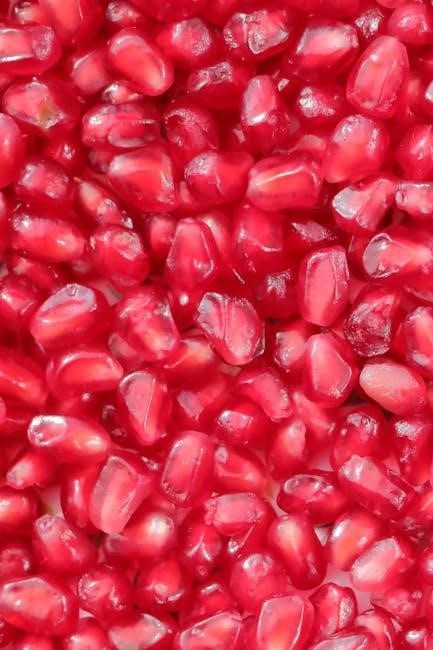Dr. Mark Hyman’s food list emphasizes whole, nutrient-dense foods, combining Paleo and Vegan principles. It promotes cruciferous vegetables, berries, and healthy fats, aiding weight management and energy.
Who is Dr. Mark Hyman?

Dr. Mark Hyman is a renowned functional medicine physician, author, and advocate for healthy living. With over 250,000 TikTok followers, he shares insights on nutrition and wellness. Known for his Pegan diet, combining Paleo and Vegan principles, he emphasizes whole, nutrient-dense foods. Dr. Hyman has designed popular programs like the 10-Day Detox, focusing on real food to reset health. His approach avoids processed foods and promotes natural ingredients. As a longevity expert, he highlights cruciferous vegetables, olive oil, nuts, and berries in his daily routine. Through his books and online platforms, Dr. Hyman empowers individuals to adopt healthier lifestyles, making him a trusted voice in the wellness community.
The Purpose of the Dr. Hyman Food List
The Dr. Hyman Food List is designed to guide individuals toward healthier eating habits by focusing on whole, nutrient-dense foods. Its purpose is to help people avoid processed and harmful ingredients while embracing a diet rich in vegetables, fruits, lean proteins, and healthy fats. The list aligns with Dr. Hyman’s Pegan approach, combining Paleo and Vegan principles to promote balanced nutrition. By emphasizing real food, it aims to support detoxification, reduce cravings, and improve overall energy levels. The list serves as a practical tool for making informed dietary choices, helping individuals achieve long-term health and wellness goals.
Why the Dr. Hyman Food List is Popular

The Dr. Hyman Food List has gained popularity due to its simplicity and effectiveness in promoting a balanced diet. It combines the best of Paleo and Vegan diets, offering a clear guide to nutrient-dense foods. Many find it appealing because it eliminates confusion about what to eat, focusing on whole foods like cruciferous vegetables, berries, and healthy fats. Dr. Hyman’s credibility as a functional medicine expert adds trust, making the list a go-to resource for those seeking sustainable health improvements. Its practical approach to weight management, energy enhancement, and chronic disease prevention resonates with individuals aiming for long-term wellness without extreme restrictions.
Key Principles of Dr. Hyman’s Diet
Dr. Hyman’s diet focuses on whole, nutrient-dense foods, eliminating processed and harmful ingredients. It combines Paleo and Vegan principles, emphasizing natural, unrefined foods for optimal health and wellness.
The Pegan Diet: A Combination of Paleo and Vegan

Dr. Hyman’s Pegan diet blends Paleo and Vegan principles, focusing on whole, nutrient-dense foods. It avoids processed items, dairy, gluten, and excessive sugar, emphasizing natural ingredients like cruciferous vegetables, berries, nuts, and healthy fats. This approach supports optimal health by eliminating harmful foods and promoting a balanced, unrefined diet inspired by ancestral eating patterns.
Focus on Whole, Nutrient-Dense Foods
Dr. Hyman’s food list prioritizes whole, nutrient-dense foods to maximize health benefits. These foods, such as cruciferous vegetables, berries, and healthy fats, are rich in vitamins, minerals, and antioxidants. By avoiding processed and refined items, the diet reduces inflammation and supports optimal digestion. Emphasizing natural ingredients ensures the body receives essential nutrients for energy and vitality. This approach aligns with Dr. Hyman’s philosophy of using food as medicine to promote long-term wellness and prevent chronic diseases. The focus is on unrefined, unprocessed foods that provide sustained nourishment and support overall health.

Elimination of Processed and Harmful Foods
Dr. Hyman’s food list strongly advocates for the elimination of processed and harmful foods. These include items high in sugar, refined carbohydrates, unhealthy fats, and artificial additives. Processed foods are often linked to inflammation, energy crashes, and chronic diseases. By removing these from the diet, individuals can reduce their risk of developing conditions like diabetes and heart disease. Dr. Hyman emphasizes that such foods disrupt the body’s natural balance and hinder optimal health. Avoiding them is a cornerstone of his approach, promoting a cleaner, more natural way of eating. This focus on elimination helps create a foundation for long-term wellness and vitality.

Food Categories in Dr. Hyman’s List
Dr. Hyman’s list categorizes foods into vegetables, fruits, proteins, and healthy fats, emphasizing nutrient-dense options like cruciferous greens, berries, grass-fed meats, and avocados for optimal health.
Vegetables: Emphasis on Cruciferous and Leafy Greens

Dr. Hyman’s food list prioritizes cruciferous and leafy green vegetables for their high nutrient density and health benefits. These include broccoli, kale, spinach, and Brussels sprouts, which are rich in vitamins, minerals, and antioxidants. Cruciferous vegetables contain sulforaphane, a compound known to support detoxification and reduce inflammation. Leafy greens provide essential fiber, vitamins A, C, and K, and minerals like calcium and iron. These vegetables are also low in calories and high in fiber, promoting satiety and digestive health. Dr. Hyman recommends incorporating a variety of these greens into meals, such as salads, smoothies, or sautéed dishes, to maximize their nutritional impact. Overconsumption of certain greens may not be suitable for everyone, so moderation is key.
Fruits: Berries and Low-Sugar Options
Dr. Hyman’s food list highlights berries and low-sugar fruits as optimal choices. Berries, such as blueberries, strawberries, and raspberries, are rich in antioxidants, fiber, and vitamins, supporting heart health and inflammation reduction. They are also low in natural sugars compared to other fruits. Apples, pears, and citrus fruits like oranges and grapefruits are recommended for their fiber content, which aids digestion and blood sugar regulation. Tropical fruits like mangoes and pineapples, while nutritious, are higher in sugar and should be consumed in moderation. Dr. Hyman suggests incorporating berries into meals or snacks for a sweet, healthy treat. These fruits align with his focus on whole, nutrient-dense foods, promoting overall well-being and energy balance.

Proteins: Grass-Fed Meats, Fish, and Plant-Based Sources
Dr. Hyman recommends high-quality proteins, emphasizing grass-fed meats, wild-caught fish, and plant-based options. Grass-fed beef, pasture-raised chicken, and wild fish like salmon are rich in omega-3s and essential nutrients. Plant-based proteins include beans, lentils, and tofu, which are versatile and nutrient-dense. He advises avoiding processed meats and choosing organic, non-GMO options to minimize exposure to harmful additives. Portion control is key, with proteins serving as a complement to vegetables. This approach supports muscle health, satiety, and overall well-being, aligning with Dr. Hyman’s focus on whole, anti-inflammatory foods. Incorporating these proteins into meals ensures a balanced diet that promotes energy and vitality.
Healthy Fats: Avocados, Nuts, and Olive Oil
Healthy fats are a cornerstone of Dr. Hyman’s food list, essential for brain health, hormone production, and satiety. Avocados are rich in monounsaturated fats, promoting heart health and reducing inflammation. Nuts and seeds, such as almonds, walnuts, and chia seeds, provide omega-3 fatty acids and fiber. Olive oil, particularly extra-virgin, is praised for its anti-inflammatory properties and should be used liberally in cooking and dressings. Dr. Hyman emphasizes choosing high-quality, unprocessed sources and avoiding hydrogenated oils. These fats support energy levels, improve digestion, and enhance nutrient absorption. Incorporating them into meals balances the diet and aligns with Dr. Hyman’s focus on whole, nutrient-dense foods for optimal well-being.
Benefits of Following Dr. Hyman’s Food List
Following Dr. Hyman’s food list promotes weight management, boosts energy, reduces inflammation, and enhances digestion. It focuses on whole, nutrient-dense foods for optimal health and well-being.
Weight Management and Improved Energy Levels
Dr. Hyman’s food list supports sustainable weight management by focusing on nutrient-dense foods that stabilize blood sugar and reduce cravings. Emphasizing proteins, healthy fats, and fiber-rich vegetables helps maintain satiety and metabolism. By eliminating processed foods and added sugars, the diet naturally promotes fat burning and energy balance. Many followers report increased vitality, as the body transitions from relying on sugar spikes to steady, long-lasting energy from whole foods. The combination of balanced macronutrients and anti-inflammatory properties also enhances mitochondrial function, further boosting energy levels. This approach not only aids in weight loss but also fosters overall metabolic health, making it easier to maintain a healthy lifestyle long-term.
Reduced Inflammation and Chronic Disease Risk
Dr. Hyman’s food list is designed to minimize inflammation, a key driver of chronic diseases. By eliminating processed foods, added sugars, and refined carbohydrates, the diet reduces inflammatory triggers. Emphasizing anti-inflammatory foods like cruciferous vegetables, omega-3 rich fish, and healthy fats (e.g., olive oil and avocados) helps lower inflammation. This approach also supports gut health, a critical factor in immune function and inflammation regulation. Studies suggest that such dietary patterns can reduce the risk of heart disease, diabetes, and other chronic conditions. By focusing on whole, nutrient-dense foods, Dr. Hyman’s list provides a foundation for long-term health and disease prevention, making it a valuable tool for those seeking to reduce inflammation and improve overall well-being.
Enhanced Digestive Health
Dr. Hyman’s food list prioritizes foods that support gut health, reducing digestive issues like bloating and irregularity. Emphasizing fiber-rich vegetables, berries, and healthy fats promotes a balanced gut microbiome. The diet avoids processed foods, added sugars, and refined carbohydrates, which can disrupt digestion. Incorporating foods like cruciferous vegetables and omega-3 rich fish helps reduce inflammation in the digestive tract. Proper digestion and nutrient absorption are further supported by the inclusion of whole, nutrient-dense foods. This approach not only improves overall digestive function but also enhances the body’s ability to absorb essential vitamins and minerals, leading to better energy levels and overall well-being. By focusing on gut-friendly foods, Dr. Hyman’s list helps restore and maintain a healthy digestive system.

Practical Tips for Implementing the Food List
Create a shopping list based on Dr. Hyman’s recommendations, focusing on whole, nutrient-dense foods. Plan meals in advance and prepare healthy snacks to stay on track.
Creating a Shopping List Based on Dr. Hyman’s Recommendations
Dr. Hyman’s food list encourages focusing on whole, nutrient-dense foods. Start by listing cruciferous vegetables like broccoli and kale, and low-sugar fruits such as berries. Include grass-fed meats, wild-caught fish, and plant-based proteins like beans and lentils. Healthy fats like avocados, nuts, seeds, and olive oil are essential. Avoid processed foods and opt for fresh, organic options when possible. Plan meals for the week and write down ingredients needed. Check labels to ensure products align with Dr. Hyman’s guidelines, avoiding added sugars and artificial ingredients. Organize your list by store sections (e.g., produce, meats, pantry) for efficient shopping. This approach ensures you stay on track with Dr. Hyman’s dietary recommendations while maintaining variety and flavor in your meals.
Meal Planning and Prep Strategies
Meal planning is crucial for adhering to Dr. Hyman’s food list. Start by planning meals for the week, focusing on whole, nutrient-dense foods. Set aside time on weekends to prep ingredients like chopping vegetables, marinating proteins, and cooking grains. Batch cooking meals like soups, stir-fries, and salads can save time during the week. Use a grocery list based on Dr. Hyman’s recommendations to ensure you have the necessary ingredients. Portion meals in containers for easy grab-and-go options. Keep healthy snacks like nuts, seeds, and berries readily available. Staying organized and prepared helps maintain consistency and reduces the temptation to resort to processed or unhealthy choices.
Snacking Options That Align with the Diet
Snacking is a great way to maintain energy levels while following Dr. Hyman’s food list. Opt for nutrient-dense options like raw or roasted nuts, seeds, and fresh berries. Vegetables such as cucumbers, carrots, and bell peppers paired with dips like hummus or guacamole are excellent choices. Hard-boiled eggs, avocado slices, and a small handful of trail mix (without added sugars) are also ideal. Avoid processed snacks and focus on whole, unprocessed foods. Snacks should be portion-controlled to prevent overeating. Keeping healthy snacks readily available ensures you stay on track with your dietary goals without compromising nutrition or satisfaction.
Common Mistakes to Avoid
Common mistakes include overconsumption of processed foods, neglecting to read labels, and inadequate hydration. Avoiding these pitfalls ensures better adherence to Dr. Hyman’s dietary recommendations.
Overconsumption of Processed Foods
Overconsumption of processed foods is a common mistake when following Dr. Hyman’s food list. These foods often contain harmful additives, added sugars, and unhealthy fats that can lead to inflammation, energy crashes, and weight gain. Dr. Hyman strongly advises avoiding such items, as they contradict the principles of his diet, which focuses on whole, nutrient-dense foods. Processed foods can also disrupt digestion and increase the risk of chronic diseases. To avoid this mistake, it’s essential to read food labels carefully and opt for fresh, unprocessed alternatives. Planning meals and snacks in advance can also help reduce reliance on convenience foods. Staying hydrated and focusing on whole foods are key to maintaining a balanced diet.
Neglecting to Read Food Labels
Neglecting to read food labels is a common oversight that can undermine the benefits of Dr. Hyman’s food list. Many seemingly healthy products contain hidden sugars, artificial additives, or unhealthy fats. Dr. Hyman emphasizes the importance of being vigilant about what goes into your body. By not reading labels, individuals may unknowingly consume processed or harmful ingredients, which contradict the diet’s focus on whole, nutrient-dense foods. To avoid this mistake, always check the ingredient list for added sugars, artificial flavors, and unhealthy fats. Opt for products with fewer, recognizable ingredients. This practice ensures alignment with Dr. Hyman’s principles and supports better health outcomes. Staying informed empowers you to make smarter, healthier choices.
Not Staying Hydrated
Not staying hydrated is another common mistake that can hinder progress on Dr. Hyman’s food list. Proper hydration is essential for digestion, energy levels, and overall health. Dr. Hyman recommends drinking plenty of water throughout the day, as even mild dehydration can impair bodily functions. Additionally, incorporating hydrating foods like cucumbers, celery, and watermelon can support fluid intake. Neglecting hydration can lead to fatigue, brain fog, and poor digestion, which counteracts the diet’s goals. To avoid this, carry a water bottle, set reminders to drink water, and limit sugary or caffeinated beverages that dehydrate. Prioritizing hydration ensures your body functions optimally and maximizes the benefits of the food list.

Resources and Support
Dr. Hyman’s official website offers detailed guides, recipes, and meal plans. His cookbooks provide practical recipes, while online forums and communities share tips and support for followers.
Dr. Hyman’s Official Website and Blog
Dr. Mark Hyman’s official website is a treasure trove of resources for those following his food list. It features detailed guides, including PDF downloads, meal plans, and shopping lists tailored to his Pegan diet. Visitors can access a wealth of recipes, articles, and tips to help them implement the diet effectively. The blog regularly updates with the latest insights on nutrition, detox plans, and lifestyle tips. Additionally, Dr. Hyman shares success stories and testimonials from individuals who have benefited from his approach. The website also offers a community forum where users can connect, share experiences, and get support. It’s a one-stop destination for anyone looking to adopt a healthier lifestyle based on Dr. Hyman’s principles.
Recommended Cookbooks and Recipes
Dr. Mark Hyman’s cookbooks are essential companions for anyone following his food list. Titles like The Pegan Diet Cookbook and Food: What the Heck Should I Cook? offer a wide variety of recipes that align with his dietary principles. These books provide meal ideas that emphasize whole, nutrient-dense foods, such as cruciferous vegetables, berries, and healthy fats. They also include practical tips for meal prep and shopping, making it easier to stick to the plan. Many recipes are designed to be simple yet flavorful, catering to both beginners and experienced cooks. Additionally, Dr. Hyman’s website features downloadable PDF guides with recipes and meal plans, ensuring you never run out of inspiration. These resources are indispensable for anyone looking to embrace a healthier lifestyle through food.
Online Communities and Forums
Online communities and forums dedicated to Dr. Hyman’s food list provide valuable support and resources for individuals on their health journey. Platforms like Facebook groups, Reddit forums, and specialized health communities offer spaces to share recipes, ask questions, and connect with others following the Pegan diet. Many of these groups are moderated by health enthusiasts or experts, ensuring accurate information and guidance. Dr. Hyman’s official website also hosts forums where users can discuss their experiences and gain insights from like-minded individuals. These communities often feature success stories, tips for staying on track, and creative ways to incorporate Dr. Hyman’s food list into daily life. They serve as a motivating and educational hub for those embracing this dietary approach.
Conclusion
Dr. Hyman’s food list offers a transformative approach to health, emphasizing whole, nutrient-dense foods. By avoiding processed items and focusing on natural ingredients, individuals can achieve improved health and energy, making it a sustainable choice for long-term wellness.
Final Thoughts on the Dr. Hyman Food List
Dr. Hyman’s food list is a powerful tool for transforming health by focusing on whole, nutrient-dense foods. By eliminating processed items and embracing a Pegan approach, individuals can achieve weight management, improved energy, and reduced inflammation. The list’s emphasis on cruciferous vegetables, berries, and healthy fats makes it a sustainable choice for long-term wellness. Its popularity stems from its simplicity and effectiveness, supported by Dr. Hyman’s expertise in functional medicine. With practical tips and resources like cookbooks and online communities, adhering to the list becomes manageable. Ultimately, it’s a holistic approach that empowers individuals to take control of their health, making it a valuable guide for anyone seeking a healthier lifestyle.
Encouragement to Start the Journey
Embracing Dr. Hyman’s food list is a transformative step toward better health. It’s natural to feel overwhelmed, but remember, small changes lead to big results. Start by incorporating one or two recommendations, like adding cruciferous vegetables or swapping processed snacks for nuts and berries. The focus on whole, nutrient-dense foods makes this approach sustainable and enjoyable. With resources like Dr. Hyman’s cookbooks and online support, you’re never alone in this journey. Celebrate progress, no matter how small, and stay committed to your health goals. Every meal is an opportunity to nourish your body and improve your well-being. Take the first step today and experience the positive impact for yourself.